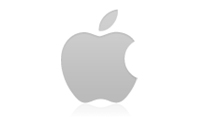He said: "Macmillan did not act illegally. Macmillan did not collude."
Sargent said the filing of the lawsuit came after discussions with the Department of Justice that lasted months.
"But the terms the DOJ demanded were too onerous. After careful consideration, we came to the conclusion that the terms could have allowed Amazon to recover the monopoly position it had been building before our switch to the agency model," he said. "We also felt the settlement the DOJ wanted to impose would have a very negative and long term impact on those who sell books for a living, from the largest chain stores to the smallest independents."
At the heart of the e-book pricing debate is the industry's ongoing concerns about Amazon. Publishers see the "agency model" as their best, short-term hope against preventing the online retailer from dominating the e-book market and driving down the price of books to a level unsustainable for publishers and booksellers.
Since launching the Kindle in 2007, Amazon has made a point of offering best-sellers for $9.99. The discount is so deep from list prices of $20 and more that it's widely believed Amazon is selling the e-books at a loss as a way of attracting more customers and forcing competitors to lower their prices. Amazon also has been demanding higher discounts from publishers and stopped offering e-books from the Independent Publishers Group, a Chicago-based distributor, after they couldn't agree to terms.
When Apple launched its tablet computer two years ago, publishers saw two ways to balance Amazon's power: Enough readers would prefer Apple's shiny tablet over the Kindle to cut into Amazon's sales and the agency model would stabilize prices.
Apple's iBookstore has yet to become a major force, but publishers believes the new price model has reduced Amazon's market share from around 90 percent to around 60 percent, with Barnes & Noble's Nook in second at 25 percent. The iBookstore is believed to have 10 to 15 percent.
Macmillan's Sargent has found himself at the heart of the dispute. In early 2010, as publishers were trying to get Amazon to agree to Apple's pricing system, Amazon pulled all the listings for Macmillan books, from Jonathan Franzen's "The Corrections" to Barbara Ehrenreich's "Nickle and Dimed." Sargent refused to back down and Amazon eventually gave in.
New e-books from Macmillan and the other publishers investigated by the Justice Department often are priced initially between $12.99 and $14.99, with Amazon making a point of noting that the price was set by the publisher. Ironically, publishers usually make less money off the agency model than the traditional one because they receive a smaller percentage of the proceeds.
Random House Inc. was the only "big six" publisher not to agree to the agency model in 2010 and was not part of the lawsuit. But the publisher of Dan Brown, John Grisham and others did agree to terms with Apple last year and now must decide whether to keep prices the same, cut them to keep up with competitors or drop the agency model altogether. Random House spokesman Stuart Applebaum — the only of the big six publishers not involved in the case — said Random would have no comments Wednesday.
According to court papers, the settlement agreement reached with three publishers said the companies agreed that for two years they will not restrict, limit or impede an e-book retailer's ability to set, alter or reduce the retail price of any electronic book. It said the retailers will be able to offer price discounts and other forms or promotions to encourage consumers to buy one or more electronic books.
The agreement also calls for the defendants not to enter into any agreement or conspiracy with any electronic-book publisher to raise, stabilize, fix, set or coordinate the retail price or wholesale price of any electronic book.
 NEW YORK (AP) — The U.S. government filed an antitrust lawsuit against Apple Inc. and book publishers Wednesday, saying the publishers conspired with Apple to raise retail electronic-book prices to limit competition.
NEW YORK (AP) — The U.S. government filed an antitrust lawsuit against Apple Inc. and book publishers Wednesday, saying the publishers conspired with Apple to raise retail electronic-book prices to limit competition.